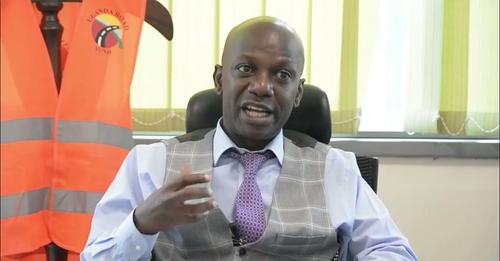Uganda road fund (URF) was set up by an Act of Parliament in 2008 and started operating in January 2010.
The fund is responsible for financing the routine and periodic maintenance of public roads sin Uganda, which are nominally valued at sh30 trillion.
Section 6(c) of the URF Act 2008 requires the fund to ensure public roads are maintained all the time and are motorable. Local road contractors are key stakeholders in Road Fund operations as they undertake a large volume of road maintenance works.
However, the business growth of these important partners has been largely lacking with many of them unfortunately closing shop! The negative impact of this on the country’s road maintenance efforts cannot be overemphasized.
The local road contractors work through the implementing agencies funded by road fund. These include; Uganda National roads Authority (UNRA), Kampala Capital city Authority, 10n cities, 31 municipalities, 135 districts, 429 town councils and 1,185 sub counties.
This article looks at some of the reasons why most local road contractors have been gradually squeezed out of road projects and even the few that exist are struggling to win contracts. 80% of civil works contracts are undertaken by foreign/international companies and a big portion of the road construction requirements are imported, amounting to 60% of the project costs. Contracts are largely in foreign currency.

The local construction industry in Uganda is weak in terms of technical and financial. They do not have the capacity to handle major road projects to the extent that all major road works are undertaken by foreign contractors.
Credit lines for local contractors are expensive, making it difficult to compete with contractors whose governments provide subsidies and other support.
In addition, the road construction industry is characterized by a number of factors which affect both the contractors and the government in getting maximum benefit from what it spends on the sector.
The promotion of local content in the construction industry would be achieved through a strategy designed to regulate and foster the growth of the domestic construction industry.
Poor industry regulation regime
The industry does not have systematic regulation, which is a key requirement for the development of the industry. In the Past, the ministry works and transport maintained a register of contractors classified into classes A to D depending on their experience/capacity. It was well- structured system that allowed a contractor to progress as they gained experience and built capacity. The system worked such that contractors in different classes would not compete for the same work.
This classification was set aside, when UNRA was operationalized. This action set in motion an unprecedented disruption in the workings of the industry. There was a sudden increase in the number of road contractors resulting in unfair competition and long procurement procedures occasioned by number of bids received per tender and administrative reviews.
The net result has been the stifled growth of most players over the last 10 years. While the number of contractors increased, the capacity has not grown because of the workings of the industry. It is now ubiquitous for a “qualified” and “competent” contractor to go more than three years without winning a contract. It creates a situation where such a contractor will no longer be able to qualify for works because they will not meet the criteria for experience in works of a similar nature and size over the last three years’.
It is on account of such situations that contractors may be reluctant to invest more in building their capacity and banks are not keen on financing local road contractors’ growth because the chances of not having worked to utilize the capacity built are in the circumstances too high.
Lengthy procurement processes.
For a number of reasons, including the vast number of bids received from the unregulated industry, procurement procedures take an excessively long period of time.
This negatively impacts the implementation of the government’s road maintenance Programmes and the contractors’ profitability and sustainability.

Contractors’ margins are usually low in a bid to have competitive bids; therefore, awarding a contract more than 10 months from the date of bid submission when prices of key inputs like diesel have increased is detrimental to a contractor’s sustainable growth. Moreover, quite often, these lengthy competitive processes do not always result in the best value for money.
Lack of growth motivators
The local road construction industry is often blamed for having no capacity and, therefore, unable to take on major projects. While it is true that the capacity is lacking, there is need for deliberate effort to support this sector.
Unfortunately, the bidding preservation requiring a percentage of works to be allocated to local contractors is being cannibalized as international contractors are now registering as local contractors.
Should a contractor build capacity through acquiring equipment and hiring the necessary personnel and then speculate in the unregulated industry of a contract or should they get the contract first, and then buy the equipment and hire the personnel to do the job?
It is very possible that the contractor builds capacity and this goes unutilized. Conversely, without capacity, no one will award you a contract. Investors in the local road construction industry are therefore, left at a crossroads and are not motivated to invest more in their construction businesses. It is indeed a “dog eat dog” in the construction industry!
Nonetheless, preferential reservation schemes for public works financed by government should be adopted to promote the use of local contractors or consultants in the execution of construction works. Mandatory sub-contracting of up to 30% of the works to suitably qualified Ugandan company, individual or resident company should be promoted.
Limited structured training for engineers and operators
Despite the government’s heavy investment in the road sector, participation of Ugandan firms is minimal due to lack of highly skilled personnel in the project management cycle and equipment operators that are crucial to improving the competitiveness of the local road construction industry.
The unsung heroes in the road construction industry are the men and women, who operate the equipment and vehicles used in the construction industry. They are ignored to the extent that while we say that we do not have local capacity, we neglect the fact that nearly all the equipment on contracts done by foreign companies is actually operated by hundreds of Ugandans supervised by a handful of foreign nationals.
The problems of these equipment operators are exacerbated by the fact that there is limited structured training programme for these persons with many of them simply learning the operation of the equipment informally.
• It is highly risky for a contractor to entrust a piece of equipment valued at more than sh250m to someone whose training and skill are not certified.
• The operators are generally not professional, lack ethics and act in a manner that reduces the efficiency and profitability of the contractor’s operation; and
• The operators’ skills are not valued as they should be and are more often paid peanuts compared to the value of work that they are able to generate.
In order to reduce shortages and better road works delivery, there is need to improve human resource capacity in the engineering construction sector.

Through the capacity building Programmes, engineers and equipment operators are trained, assessed and certified by the relevant organs of construction.
Limited access to adequate and affordable capital
Given the nature of the industry that does not allow one to predict their income/order book with reasonable certainty, local road contractors are not able to attract the funding necessary for their growth
Every financier wants to tag financing to existing work or contracts on hand, but not on potential contracts.
Therefore, in the absence of assurance for work or contracts on hand, the business is not attractive to investors or bankers. Limited access to finance has reduced competition in bidding.
A construction Guarantee Fund (CGF) should be established and financial institutions encouraged to participate in it to avail for contractors the opportunity to access bid bonds, performance bonds/guarantees and advance payment guarantees. This will increase participation of local contractors and we shall get better value for money spent on roads.
Inefficient equipment market
Most contractors do not have complete sets of equipment to carry out road construction/maintenance works. On the market there isn’t sufficient equipment to buy or hire.
Poor equipment performance affects the quality of work outputs. Plant hire pools and/or asset financing schemes should be initiated to assist or support enterprises or contractors to buy equipment and hire out equipment for road construction and maintenance.
Poor staff retention
Contractors find it hard to retain staff when they do not have contracts on hand and are largely unsure as to when a contract will come long. Therefore, contractors have to lay off well-trained and experienced staff because it is not sustainable keeping them on the payroll when the order book is empty or not big enough to justify their retention.

Delayed payments
Payments to road contractors are routinely delayed which makes it impossible for contractors to meet their financial obligations on time. It is because of this that some contractors have suffered foreclosures from their bankers on account of these delays and bankers are generally weary of funding road contractors.
Intergenerational business continuity
Most of the household road contractors are no longer in existence due to lack of inter-generational business continuity, financial indiscipline and loss of historical knowledge.
Therefore, to get better value for money, the government’s investments in the road infrastructure should focus on building capacity of local contractors and consulting engineers and enacting policies that create an enabling environment for development and growth of local road contractors.
The writer is the Executive Director of Uganda Road Fund.





